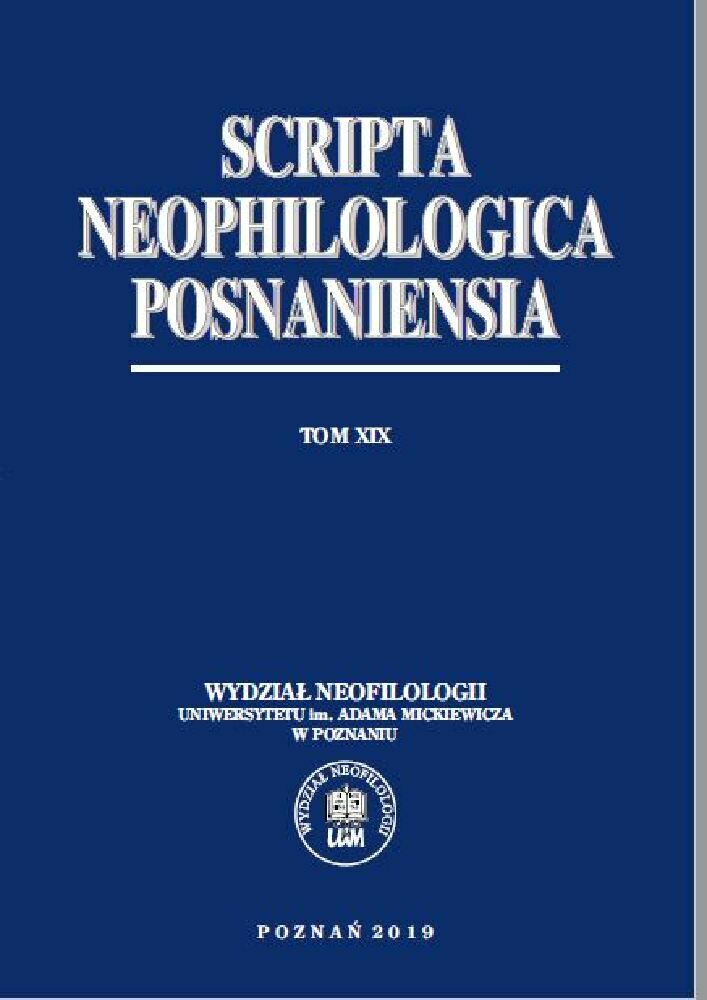Abstrakt
The subject of the article is the aesthetic reception of concrete poetry and the possibility of its use in foreign language classes. Reception aesthetics concentrates on the reception of the work and not its production. Concrete poetry works on sight and hearing, combines decoding of letters with visual perception and creates special opportunities for aesthetic reception in foreign language classes. The article draws attention to the phenomenon of text communication. The historical background and the first attempts to experiment with concrete poetry are discussed. Works of concrete poetry bring together aesthetics and didactics, which justifies their use in class. The functions and objectives of working with concrete poetry in the lesson are discussed and examples of works included in textbooks and examples of lesson scenarios are given.
Bibliografia
Barkowski, H. i M. Fritsche. 1980. Deutsch für ausländische Arbeiter. Gutachten zu ausgewählten Lehrwerken. Königsstein/Ts.: Verlag Manfred Werkmeister.
Bredella, L. 1984. „Literarische Texte im Fremdsprachenunterricht: Gründe und Methoden“. W zbiorze: Heid, M. (red.). Literarische Texte im kommunikativen Fremdsprachenunterricht. Beiträge eines Werkstattgespräches des Goethe House New York vom September 1984. München: Goethe Institut. 352-394.
Denka, A. 2000. „Beschreibung fremdsprachlicher literarischer Leseprozesse am Beispiel der Konkreten Poesie“. Studia Germanica Posnaniensia 26. 183-197.
Gazda, G. 2012. Słownik rodzajów i gatunków literackich. Warszawa: PWN.
Głowiński, M., Kostkiewiczowa, T., Okopień-Sławińska, A. i J. Sławiński. 2002. Słownik terminów literackich. Wrocław: Ossolineum.
Gołaszewska, M. 1984. Zarys estetyki. Problematyka, metody, teorie. Warszawa: PWN.
Gomringer, E. (red.). 2009. Konkrete Poesie. Stuttgart: Philipp reclam jun.
Gross, S. 1994. Lesezeichen. Kognition, Medium und Materialität im Leseprozess. Darmstadt: Wissenschaftliche Buchgesellschaft.
Jauss, H.R. 1999. Historia literatury jako prowokacja. Warszawa: Wydawnictwo IBL.
Kaniewska, B. i A. Legeżyńska. 2003. Teoria literatury. Skrypt dla studentów filologii polskiej. Poznań: Wydawnictwo „Poznańskie Studia Polonistyczne”.
Karolak, Cz. 2011. Dydaktyka literatury wobec potrzeb nauki języka w warunkach obcokulturowych. Poznań: Wydawnictwo Naukowe UAM.
Kast, B. 1984. Literatur im Unterricht. Methodisch-didaktische Vorschläge für den Lehrer. München: Goethe – Institut.
Krechel, R. 1991. Konkrete Poesie im Unterricht des Deutschen als Fremdsprache. Heidelberg: Julius Gross Verlag.
Krusche, D. 1985. „Die Chance des fremdkulturellen Lesers. Konkrete Poesie im Anfangsunterricht Deutsch als Fremdsprache und danach?“. W: Krusche, D. Literatur und Fremde: zur Hermeneutik kulturräumlicher Distanz. München: Iudicium Verlag. 184-208.
Neuner, G., Scheling, T. i R. Schmidt. 1987. Deutsch Aktiv Neu: Lehrbuch 1A. Berlin: Langenscheidt.
Weber, H. 1995. Vorschläge 2: Literarische Texte für den Unterricht DaF. Bonn: Inter Nationes.
Wicke, R.E. 2004. Aktiv und kreativ lernen: Projektorientierte Spracharbeit im Unterricht. Deutsch als Fremdspreche. München: Max Hueber Verlag.
